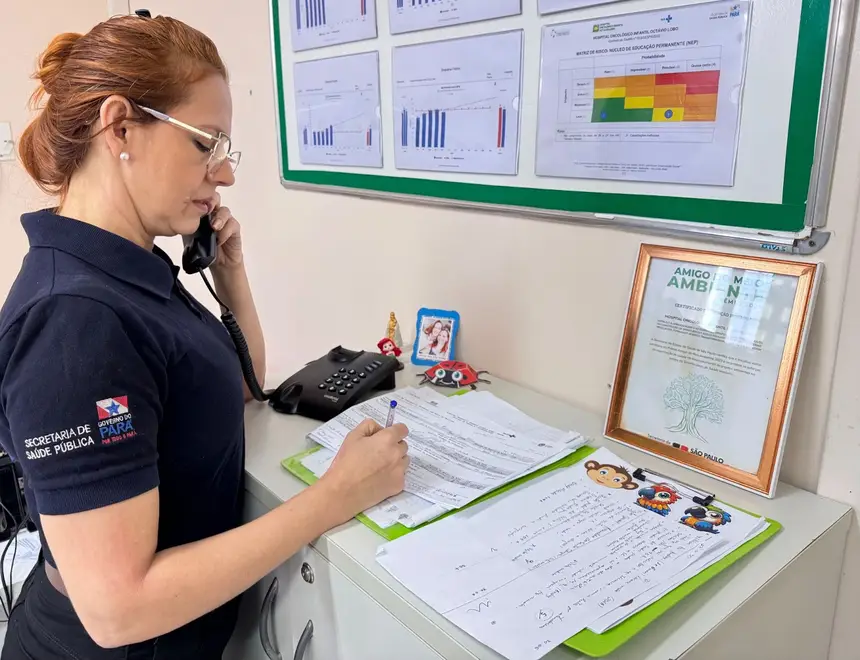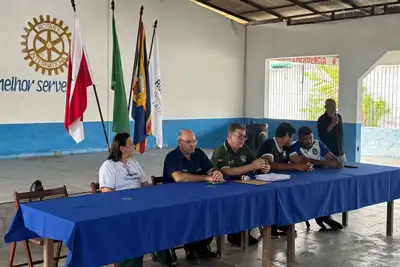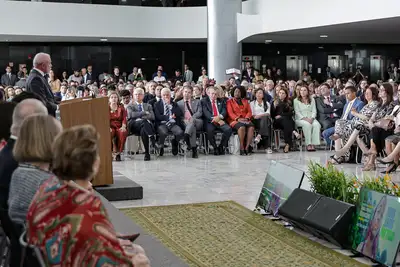Octávio Lobo Hospital achieves 97.25% approval and exceeds user satisfaction target
Strategic meetings, active listening, and integrated actions strengthen patient experience and reduce the number of complaints
The Octávio Lobo Children's Oncology Hospital (Hoiol), in Belém, achieved 97.25% satisfaction among users in June. This number represents the highest index of the year and reinforces the results of a continuous effort to improve the quality of care provided at the unit, a reference in pediatric oncology in the Northern region of Brazil. The institutional target for overall satisfaction is set at 90%, and since January, the Hospital has maintained indices above this level.
At Hoiol, data is collected through internal surveys conducted by the User Service Department (SAU) and through post-discharge surveys carried out by the Patient Experience Office (EEP). The questionnaires, applied at the bedside, in the Outpatient Clinic, or during the reception in the service room, generate information that is analyzed in monthly strategic meetings with the unit's management. In these meetings, suggestions, dissatisfaction, and points of attention identified are discussed. The goal is to transform user perceptions into concrete actions that elevate the standard of care provided.
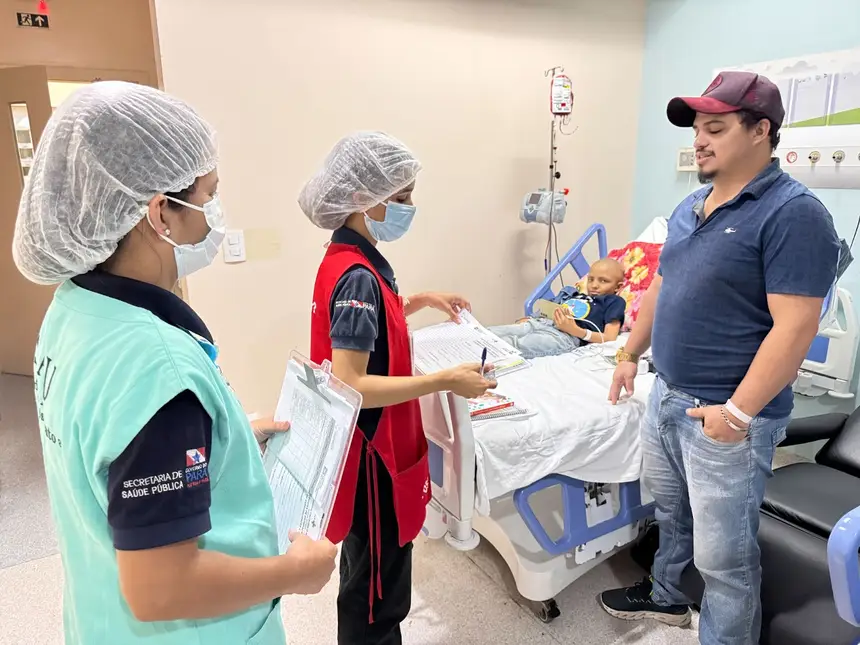
The General Director of the Children's Oncology Hospital, Sara Castro, states that the adopted methodology is responsible for the continuous improvement recorded in the indices. "Through the diagnosis obtained from the collected data, we anticipate possible demands and ensure that the user is heard at all stages of care," said the manager.
The coordinator of the EEP and SAU, Natacha Cardoso, explains that the permanent operation of the User Service enables active bedside searching, welcoming mothers, and humanized reception in all sectors. Through this work, user observations are recorded. “In addition to the overall satisfaction level, we record compliments and complaints, so that proper actions can be taken. In May, for example, only three formal complaints and 87 compliments to the unit were recorded,” emphasizes Natacha Cardoso.
Perspectives - With an emphasis on qualified listening and continuous improvement of care, the Patient Experience Office acts as one of the pillars of humanization processes. The initiative's main objective is to understand, from the user's perspective, how each stage of hospitalization was, from arrival to hospital discharge. “The focus is on the user. Through a structured survey, we seek to understand how the user's experience was during the most recent hospitalization,” informs Elizabeth Cabeça, administrative assistant of the department.
The post-discharge interview is conducted with a questionnaire consisting of 23 questions, covering everything from reception service to the instructions received at the time of discharge, including aspects such as hygiene, food, nursing, and relationship with the medical team. “The patient can point out both positive and negative aspects. And, at the end, they assign a score to that hospitalization,” details Elizabeth Cabeça.
The monthly goal of the Office is to apply the survey to at least 30% of hospital discharges. These evaluations feed into the Net Promoter Score (NPS), an international metric that measures user satisfaction within the patient experience, and constitutes one of the main indicators of satisfaction for the unit.
NPS data is also presented in monthly meetings with the institution's management, through the Patient Experience Committee. “It is a way to keep the unit's leadership aware of what is happening at the front line, based on the real reports from patients. From these meetings, strategies are defined to correct failures, reinforce good practices, and ensure the quality of care,” emphasizes the assistant.
Elizabeth Cabeça also highlights that many patients form a bond with the Office and feel comfortable maintaining contact even after discharge. “It is common for them to spontaneously reach out to share their experiences. At home, more relaxed, many are able to share what they felt during hospitalization,” she adds.
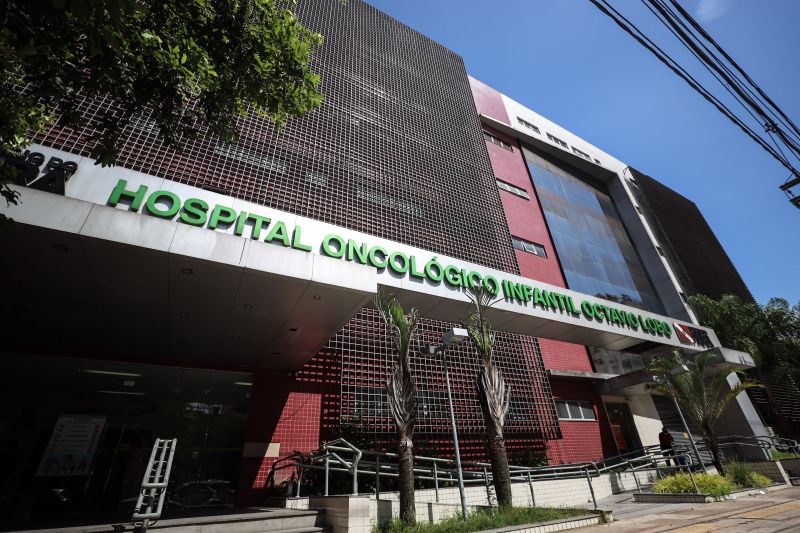
Connections - According to Joyce Wanzeler, leader of the SAU, listening channels are fundamental to improving services and strengthening the trust bond between the Hospital and users. “Listening to the user is ensuring that they actively participate in care. This is humanization in practice,” says Joyce, emphasizing the relevance of the joint actions of the Humanization and Patient Experience Committees for the advances achieved in the unit. According to her, “the user observes improvements and demonstrates satisfaction, as they know that evaluations inspire actions that enhance care for users of the Unified Health System (SUS).”
Under treatment for more than a year at Octávio Lobo Hospital, Enzo Henrique, 9 years old, is being treated for a medulloblastoma, a type of brain tumor. Accompanied by his father, Wallace Santiago, 29 years old, the boy arrived in Belém from Marabá, in southeastern Pará, after presenting nausea and undergoing tests. “I took him to the doctor, they did an MRI and discovered the tumor. Thank God, we were quickly referred to Belém, and he started treatment here (at Hoiol),” says Wallace.
The family had to move to the capital. Wallace is in the city with his wife and two of their five children, while the others remain with their grandmother in Marabá. Despite the challenges of the move, he states that he feels welcomed by the team and confident in Enzo's recovery. “The care is excellent, and my son is responding well to treatment. I can only thank this place and the professionals,” he assures.
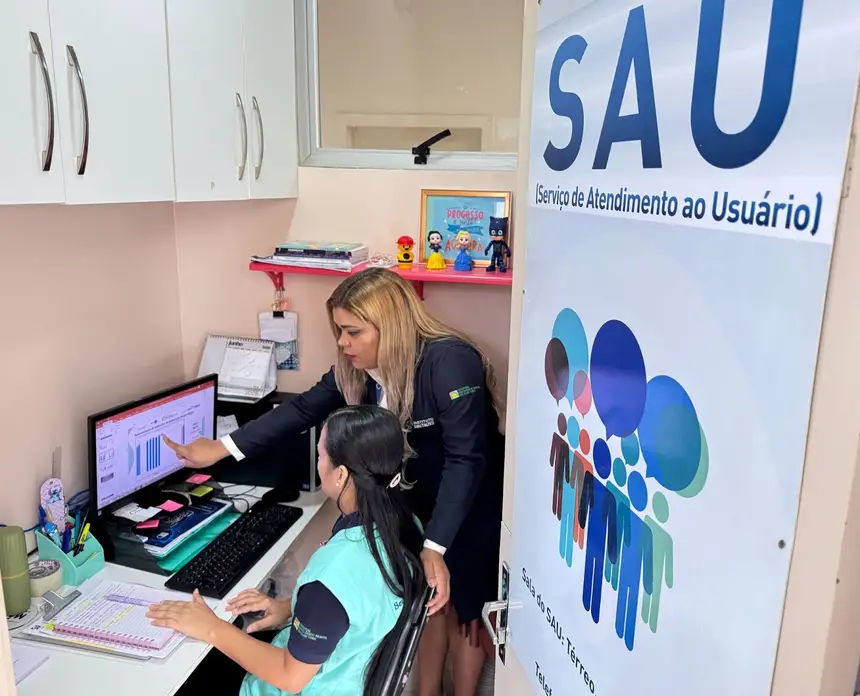
Wallace Santiago also highlights the importance of being heard, especially regarding the care and structure of the unit. “I feel good being heard, and I think this type of listening is important because if no one speaks up, situations can go unnoticed. The service exists, and it works so that we are heard. It’s not about criticizing to harm, but to ensure that everything continues to function well,” he adds. “If I were to praise everything, it wouldn’t fit on the paper. I treat everyone well, and I am treated the same way. I have nothing to complain about; the work here is excellent,” says Wallace.
Service: Accredited as a High Complexity Unit in Oncology, the Octávio Lobo Children's Oncology Hospital is a reference in the Amazon region for the diagnosis and specialized treatment of childhood and adolescent cancer, for ages 0 to 19 years old. The unit is managed by the Institute Diretrizes (ID), under a management contract with the State Department of Public Health (Sespa), and serves patients from the 144 municipalities in Pará.
Text: Ellyson Ramos - Ascom/Hoiol


